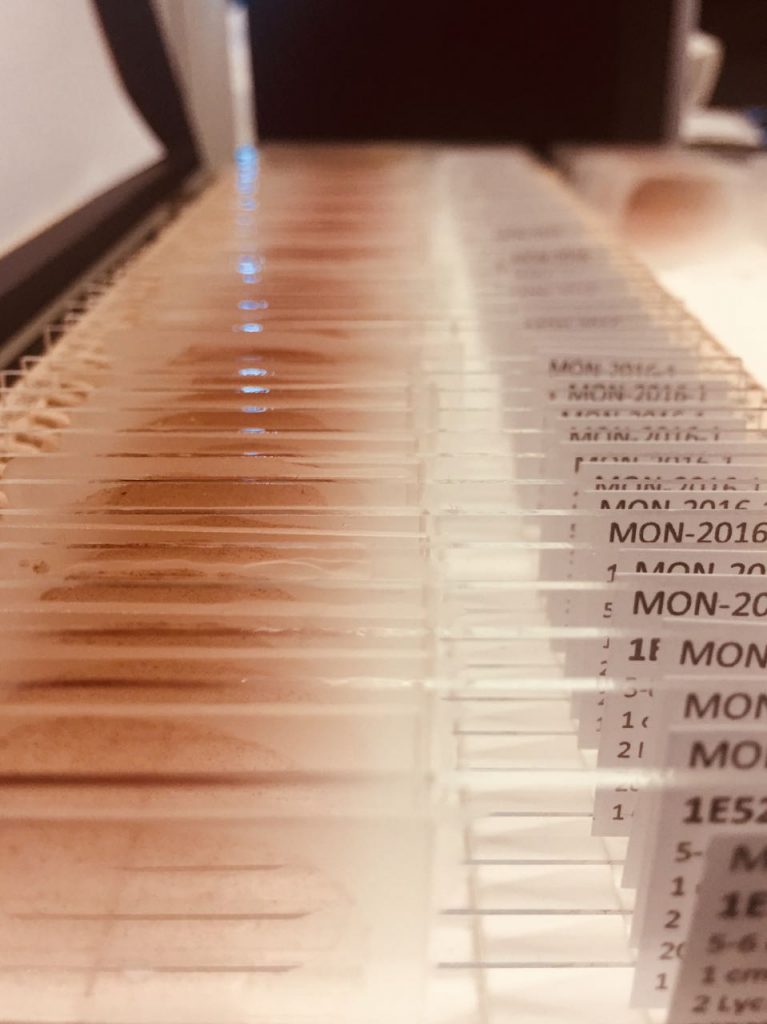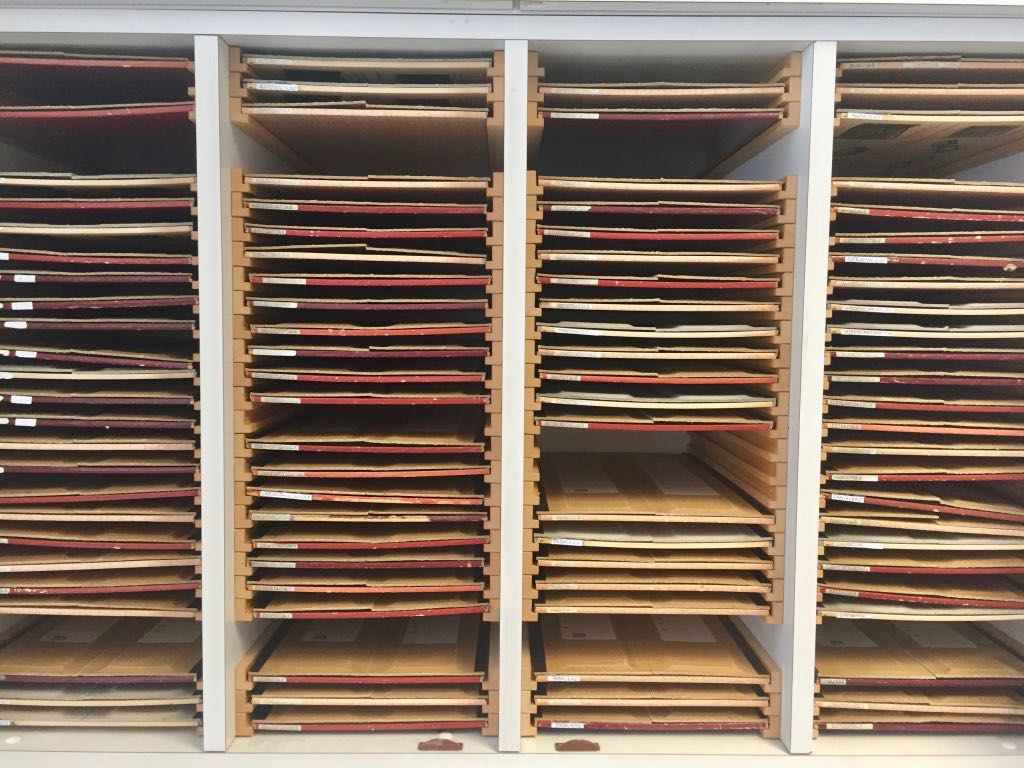Last Thursday I gave an informal introduction to R at the Institute of Botany in Innsbruck. Despite R’s non-user-friendly reputation, the R Made Easy lecture attracted 25 people: Master students, PhD students post-docs, and a few regular employees. During four hours, the basic functionalities of R, and the most recent data handling and visualisation methods (ie, tidyverse) were covered.
Continue reading →Year: 2018
Dexterology
Just a picture today to illustrate a somehow scary fact.

In the last years, I filled a dozen of such boxes, each containing a hundred slides. This is around a thousand pollen samples analysed! I should make the sum one day. A bit or R code should do it 😀
How to prepare clean (pollen) slides
I prepared my first pollen slides during my Master studies, in 2009. I have been introduced how to pipette a portion of the sample and mount it between a slide and cover slide. Some colleagues don’t necessarily seal their slides before analysis, but I personally like to seal them to prevent any leak. This is important to me since I mount pollen samples in glycerine, and it is difficult to get rid of it completely if it ever touched the optic of the microscope.
Continue reading →LaTeX, then pandoc
I write manuscripts with LaTeX. Yes, it might old-fashioned, compared to Markdown—which I also use—but it fits my needs. I appreciate its handling of references (I mean, from the literature), and of the cross-references. Figure 1 always means figure 1! Unfortunately, I am a bit of an outlier in my discipline, biology, to keep it general. All my colleagues I’m supposed to write manuscripts with rely and the good old Word.
Continue reading →Should you update your reference collection classification?
Palynologists count on reference collections. These are hundreds of slides from modern samples. Flowers were collected and pollen mounted on slide, for long-term storage. In case of any doubt when identifying a pollen grain, these reference slides can help. Of course, it works when you already have an idea about this pollen grain, but you’re just not quite sure. Such collections are organised in families.

Global Raisins Survey
Science can be everywhere. Scientific questions, and, hopefully, scientific answers. Regularly at the university’s cantine, the salad bar offers nice options, but – in my opinion – ruins them with raisins. When I shared this taste of mine with my colleagues, only a few people answered that they like them. We therefore questioned the abundance of raisins. It started as a joke, but as practical scientists, we now want evidence.
Continue reading →Fast and lazy replacement in Excel
During every-day data wrangling, I often have to find and replace elements in Excel. This particularly happens when I open CSV and text files generated with R. Because French locales (and many others) use a comma as a decimal mark, Excel doesn’t recognise it in such files on my French-set system, and considers these values as text. Unfortunately, this prevents me from making quick checks with formulas…
Continue reading →What pollen people do?
Scientists definitely are multi-talented people. While we’re required to practice critical thinking on both our own and colleagues works, we also have to master many other skills. Apart from the acquisition of data, we need to properly store a numerical version of them, eventually to compute statistics on them. We need knowledge of graphical processing software to represent our results nicely, and write valuable scientific papers out of them. We sometime teach to students, that requires synthesis, pedagogic, and oral capabilities. We have to deal with paper work, which sadly tends to increase. We need to write applications for positions and/or for grants (and, ironically, so that we can do our job – are you going to the office and think “let’s first find the money to do my job”? – ). The list is endless, and there is no doubt I forgot important examples. Icing on the cake, we’re in an arena of competition, struggling for visibility and high impact factor (I should write about this guy, one day).
Continue reading →